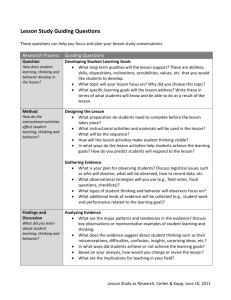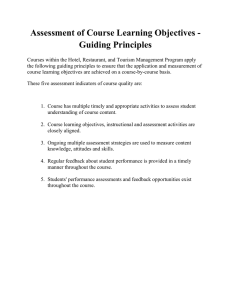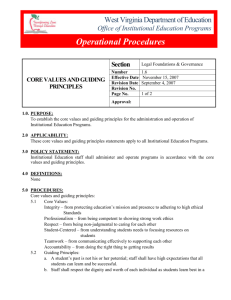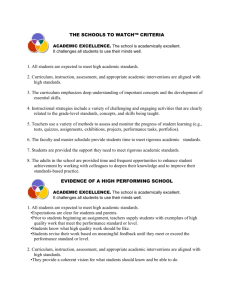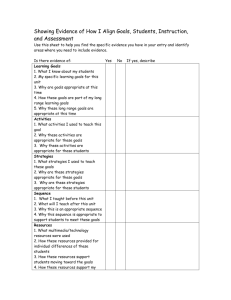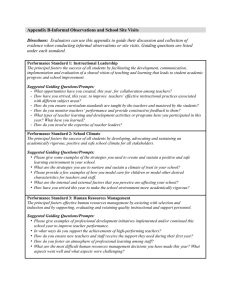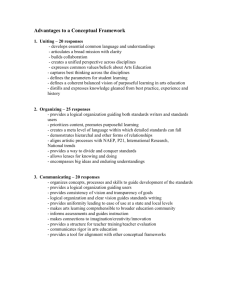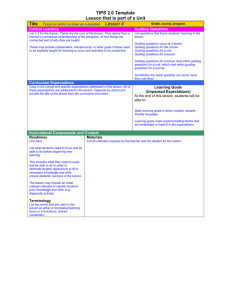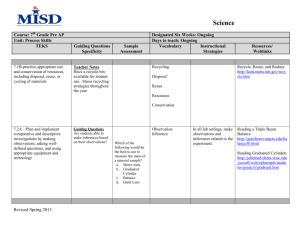The Critical Elements of Common Core Instruction Understanding
advertisement
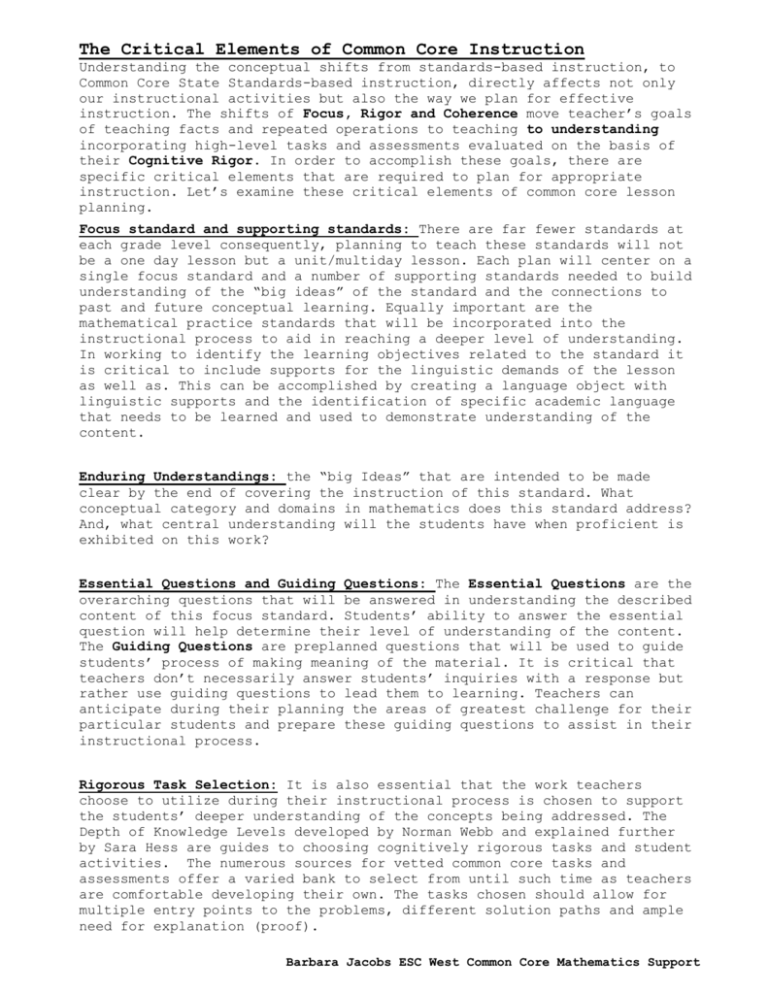
The Critical Elements of Common Core Instruction Understanding the conceptual shifts from standards-based instruction, to Common Core State Standards-based instruction, directly affects not only our instructional activities but also the way we plan for effective instruction. The shifts of Focus, Rigor and Coherence move teacher’s goals of teaching facts and repeated operations to teaching to understanding incorporating high-level tasks and assessments evaluated on the basis of their Cognitive Rigor. In order to accomplish these goals, there are specific critical elements that are required to plan for appropriate instruction. Let’s examine these critical elements of common core lesson planning. Focus standard and supporting standards: There are far fewer standards at each grade level consequently, planning to teach these standards will not be a one day lesson but a unit/multiday lesson. Each plan will center on a single focus standard and a number of supporting standards needed to build understanding of the “big ideas” of the standard and the connections to past and future conceptual learning. Equally important are the mathematical practice standards that will be incorporated into the instructional process to aid in reaching a deeper level of understanding. In working to identify the learning objectives related to the standard it is critical to include supports for the linguistic demands of the lesson as well as. This can be accomplished by creating a language object with linguistic supports and the identification of specific academic language that needs to be learned and used to demonstrate understanding of the content. Enduring Understandings: the “big Ideas” that are intended to be made clear by the end of covering the instruction of this standard. What conceptual category and domains in mathematics does this standard address? And, what central understanding will the students have when proficient is exhibited on this work? Essential Questions and Guiding Questions: The Essential Questions are the overarching questions that will be answered in understanding the described content of this focus standard. Students’ ability to answer the essential question will help determine their level of understanding of the content. The Guiding Questions are preplanned questions that will be used to guide students’ process of making meaning of the material. It is critical that teachers don’t necessarily answer students’ inquiries with a response but rather use guiding questions to lead them to learning. Teachers can anticipate during their planning the areas of greatest challenge for their particular students and prepare these guiding questions to assist in their instructional process. Rigorous Task Selection: It is also essential that the work teachers choose to utilize during their instructional process is chosen to support the students’ deeper understanding of the concepts being addressed. The Depth of Knowledge Levels developed by Norman Webb and explained further by Sara Hess are guides to choosing cognitively rigorous tasks and student activities. The numerous sources for vetted common core tasks and assessments offer a varied bank to select from until such time as teachers are comfortable developing their own. The tasks chosen should allow for multiple entry points to the problems, different solution paths and ample need for explanation (proof). Barbara Jacobs ESC West Common Core Mathematics Support
